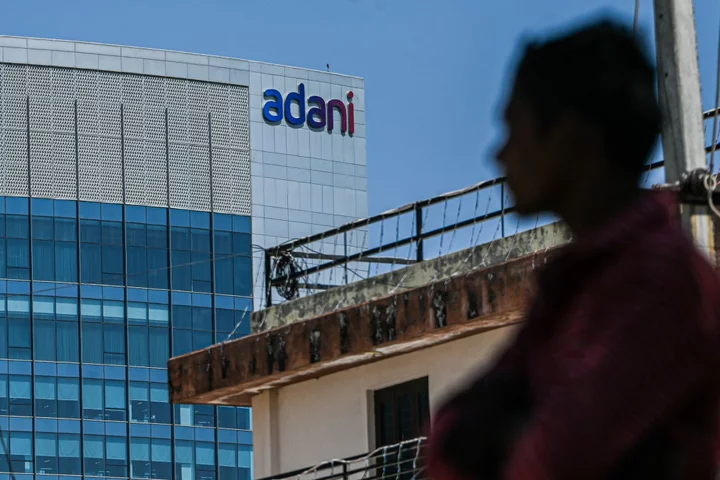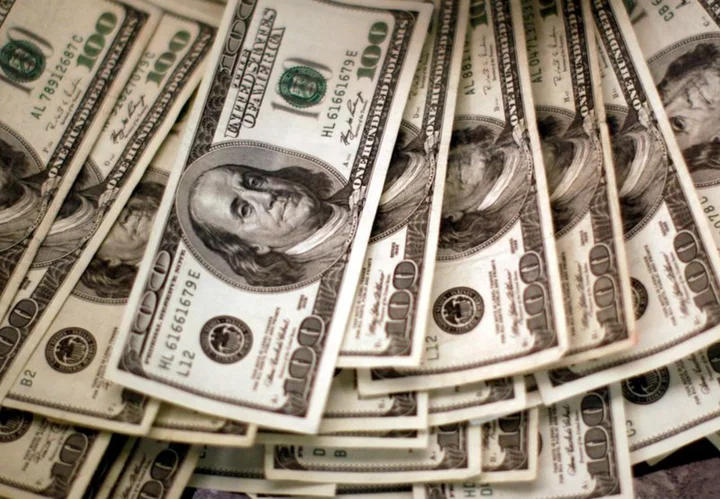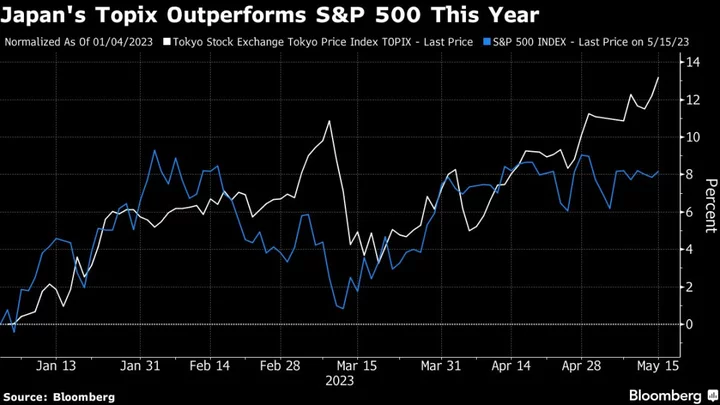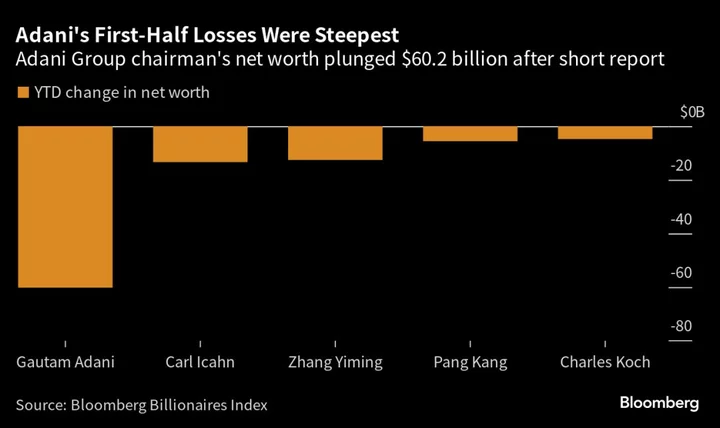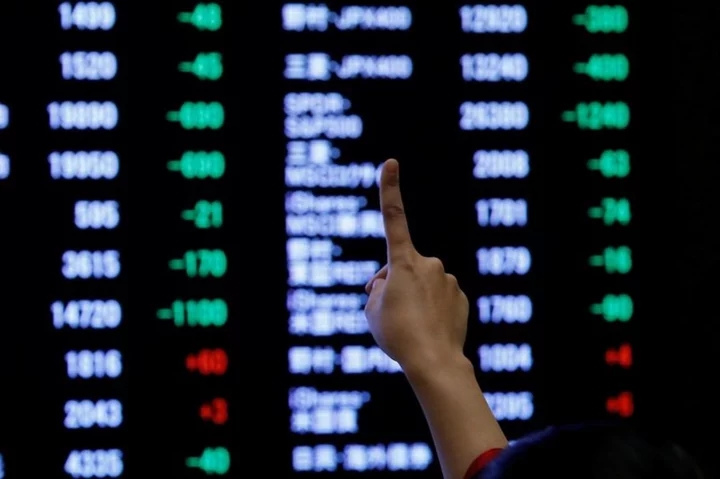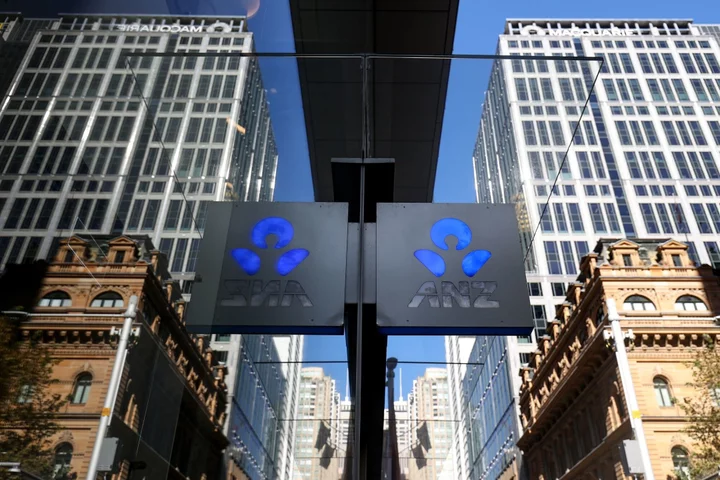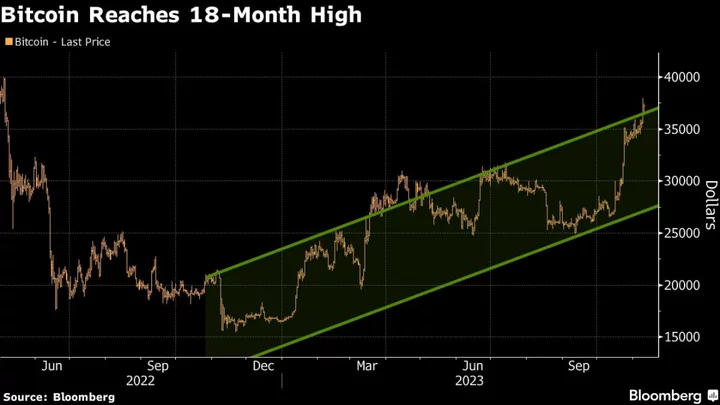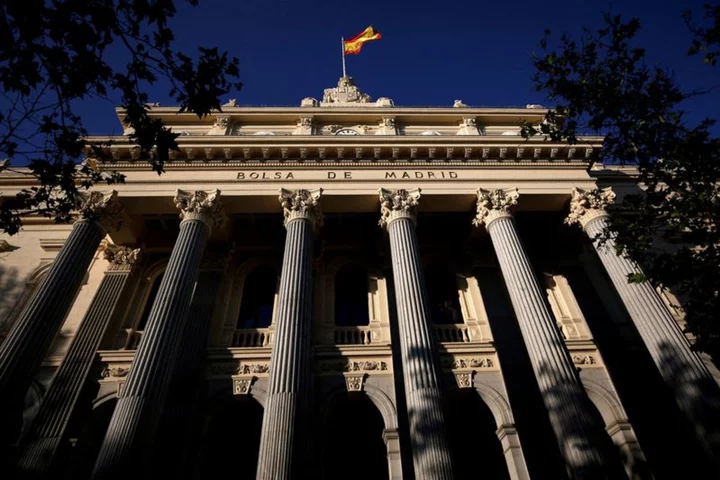A committee appointed by India’s top court said that it doesn’t see any regulatory failure or signs of price manipulation in the rise and fall of the Adani Group’s stocks, in an interim report that’s a reprieve for the embattled conglomerate.
All 10 Adani Group stocks rose in Mumbai trading on Friday after the six-member panel’s report was made public, with flagship firm Adani Enterprises Ltd. and Adani Ports and Special Economic Zone Ltd. recovering the day’s losses to close around 3.5% up.
In its 173-page report, the committee said that based on the data from the markets regulator Securities and Exchange Board of India, or SEBI, it saw “no evident pattern of manipulation” in the steep stock price rise in billionaire Gautam Adani’s companies that can be attributed to “any single entity or group of connected entities.”
This refers to a central allegation of Hindenburg — the US short seller that claimed wide-ranging corporate malfeasance by the Adani Group in January — that offshore shell companies tied to Adani family were bidding up the empire’s shares.
Prior to the Hindenburg attack, Adani Group companies were on a years-long runaway rally, buoying Gautam to the position of world’s second-richest man last September. The group has denied all of Hindenburg’s allegations.
The initial findings of the court-appointed panel, which was set up on March 2, come as a relief for Adani’s empire as well as SEBI. Yet it may renew concerns among foreign investors that Indian institutions are not holding the country’s most powerful conglomerates to global standards of corporate governance.
Investigations are ongoing. SEBI has an Aug. 14 deadline from the Supreme Court to close its probe on any securities law violation by the Adani Group, as well as any unusual market activity in its stocks.
The regulator is still investigating the ownership of 13 overseas entities since October 2020 that hold Adani firms’ shares, said the panel, because of their “opaque” structures where the ultimate chain of ownership is unclear.
SEBI is also looking into the rout that wiped more than $100 billion off the conglomerate’s market value — specifically “suspicious trading” by six entities because of their “build up of short positions” in Adani stocks before Hindenburg’s report.
The panel’s interim findings will add momentum to the Adani Group’s comeback strategy, which includes a $2.6 billion fundraising plan announced by two of its companies earlier this month. The proposal to issue shares is its first since the crisis disrupted a breakneck pace of growth.
The tycoon and his firms have also been prepaying some debt, buying back some bonds, holding investor roadshows and selling stakes to investors like Rajiv Jain’s GQG Partners.
--With assistance from Chiranjivi Chakraborty, Advait Palepu and Menaka Doshi.
(Updates with details throughout.)

